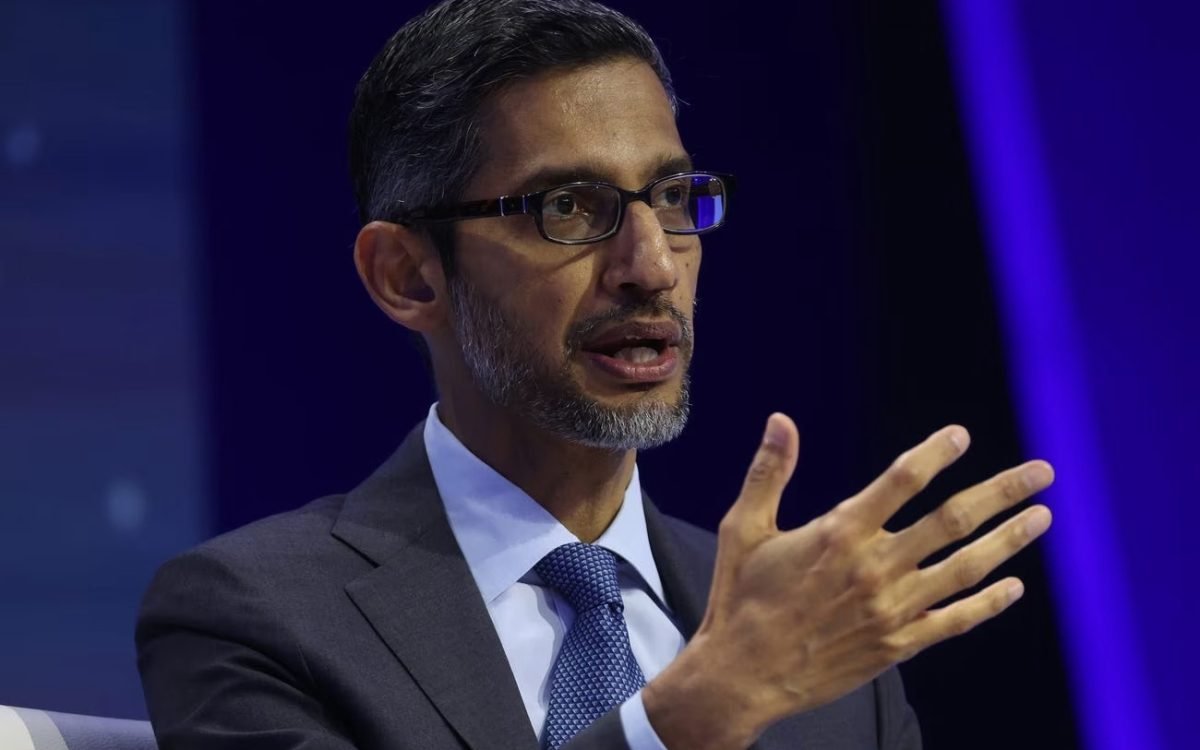In the corridors of the Googleplex, a sense of turbulence looms as the tech giant grapples with unforeseen setbacks in its AI endeavors. The recent debacle surrounding the Gemini image generator has not only rattled investor confidence but has also fueled speculation about the efficacy of Google’s leadership under CEO Sundar Pichai.
The decision to halt the Gemini project, amidst criticism over historically inaccurate images, has sparked a public outcry and led to a significant dip in Google’s stock value. Pichai’s unequivocal acknowledgment of the situation as “completely unacceptable” underscores the severity of the misstep and amplifies calls for accountability within the organization.
Analysts and industry insiders alike have begun to question Google’s agility in the fiercely competitive landscape of artificial intelligence. Ben Thompson’s incisive commentary on the need for transformative leadership resonates deeply within Silicon Valley, prompting soul-searching conversations about the direction of the company.
Mark Shmulik’s contemplation of a potential shake-up at the helm of Google reflects broader concerns about the efficacy of the current management team. The growing chorus of voices advocating for change underscores the urgency of addressing systemic issues that impede innovation and progress.
Google’s recent missteps, compounded by previous errors such as the Bard slip-up, have fueled perceptions of a company grappling with the pressures of rapid development. The inherent challenges of navigating bureaucracy and safeguarding the core search business have exposed vulnerabilities in Google’s operational framework.
Sundar Pichai’s leadership, characterized by a steady hand and a penchant for diplomatic engagement, has steered Google through periods of stability and growth. His tenure has been synonymous with shareholder value and strategic maneuvering in the face of regulatory scrutiny.
However, as concerns mount over a perceived stasis within the Googleplex, the imperative for transformative leadership becomes increasingly apparent. The need to foster a culture of innovation and adaptability resonates with voices from within the company and echoes across the broader tech ecosystem.
Aravind Srinivas’ reflections on Pichai’s leadership trajectory offer insights into the nuanced discourse surrounding Google’s future. While acknowledging Pichai’s contributions, the conversation around succession underscores the necessity of visionary leadership capable of navigating Google through evolving landscapes of technology and competition.
In the face of adversity, Google stands at a pivotal juncture, poised to redefine its narrative and reaffirm its commitment to excellence. The path forward demands introspection, accountability, and a steadfast dedication to harnessing the transformative power of artificial intelligence in service of a better future. As the tech titan navigates choppy waters, the clarity of its vision and the resolve of its leadership will shape the trajectory of its journey in the years to come.









